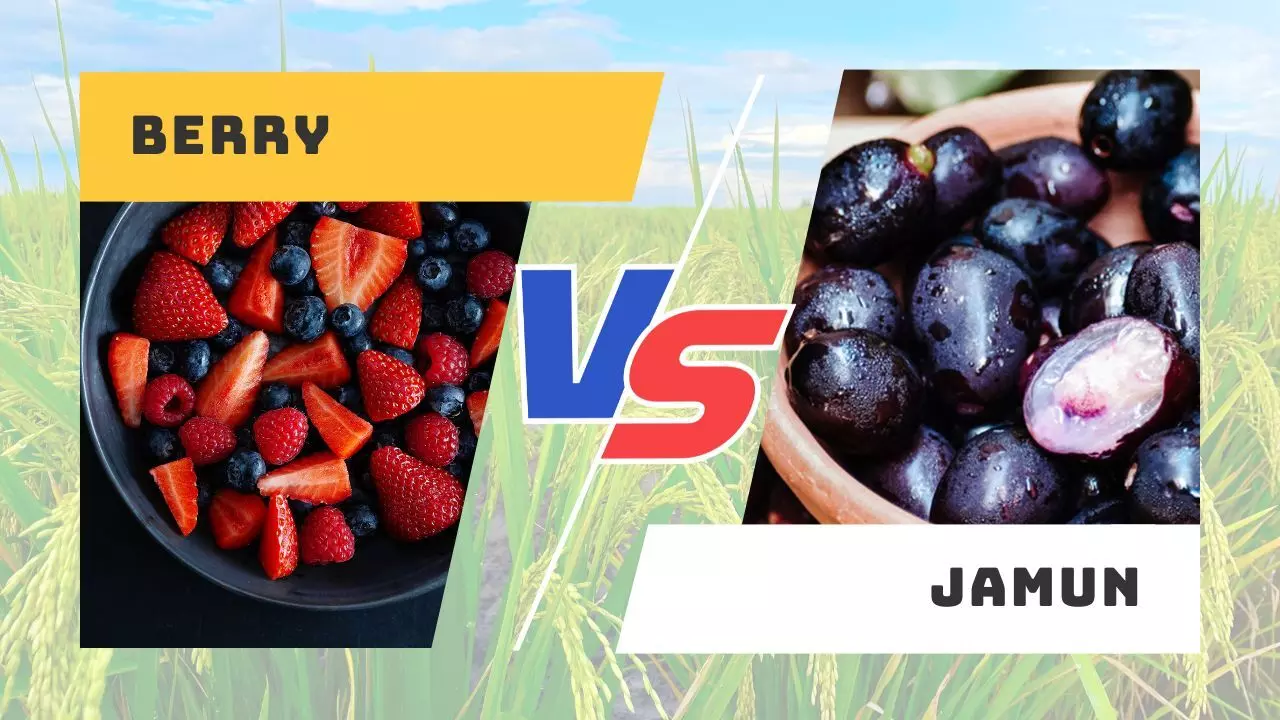Berry vs. Jamun: Which fruit is better for health during Summer?

Why pay hundredth time the price when you can have something inexpensive and easily available?
Jamun and berries are frequently linked because of their similar appearance and nutritional benefits. However, native jamun is not only more beneficial to our health but also more nutritionally dense. Let us see!
Summer offers a variety of delectable seasonal fruits. While berries like blueberries, blackberries, and raspberries are high in antioxidants and can be used in smoothies, breakfast parfaits, and other dishes, the much-loved jamun evokes nostalgia in many people. Jamun, a native fruit with a long history of use in traditional medicine, is renowned for its health benefits.
Berries are well known for their high nutritional value, as they include several vitamins, minerals, and antioxidants. Strawberries, for example, contain high levels of vitamin C, manganese, folate, and potassium, while blueberries are known for their high anthocyanin content, which contributes to their brilliant colour and antioxidant benefits. Raspberries and blackberries are also high in fiber, which helps with digestion and promotes satiety.
While less familiar to people in Western countries, Jamun has an equally impressive nutritional profile. It boasts a lower calorie content and is high in vitamins A and C and minerals, including calcium, iron, and potassium. Jamun is also known for its strong antioxidant content, including anthocyanins, which contribute to its deep purple colour and potential health benefits.
What benefits do berries offer?
Berries are well known for their high antioxidant content, which helps fight oxidative stress and inflammation in the body, potentially lowering the risk of chronic diseases, including heart disease and cancer. Berries' fiber, potassium, and polyphenols have been linked to better heart health by lowering blood pressure and cholesterol and improving blood vessel function.
According to research, the antioxidants present in berries benefit brain health and cognitive function, potentially lowering the risk of age-related mental decline. Berries are a fantastic choice for those looking to manage their weight because of their fiber and low-calorie content, which encourage satiety and ease digestion.
What benefits does jamun offer?
Jamun has traditionally been utilised in Ayurvedic medicine because of its capability to manage blood sugar levels. It contains chemicals such as jamboline, which may enhance insulin sensitivity and help manage diabetes. Jamun's fiber content aids digestive health by reducing constipation and encouraging regular bowel movements.
Jamun's antioxidants may help protect the skin from oxidative damage, encouraging a young appearance and lowering the risk of skin disorders, including acne and premature aging. The vitamin C concentration of jamun improves the immune system, assisting the body in fighting off infections and illnesses, which is especially beneficial during the summer when the immune system may require extra assistance.
During the summer, berries can be eaten fresh as a snack, blended into smoothies, salads, or oatmeal, or used in desserts like pies, tarts, and preserves. Berries can be dried or frozen to extend their shelf life. Jamun is cheaper and more widely available; it is frequently consumed fresh, either alone or in combination with other fruits in salads or fruit chaats. It is also used to make jams, jellies, and drinks like juice and sherbet. Jamun is also pickled or dried for preservation, which extends its availability beyond the summer months.
Mouthwatering, already? Relish the fruits and reap their benefits!

















